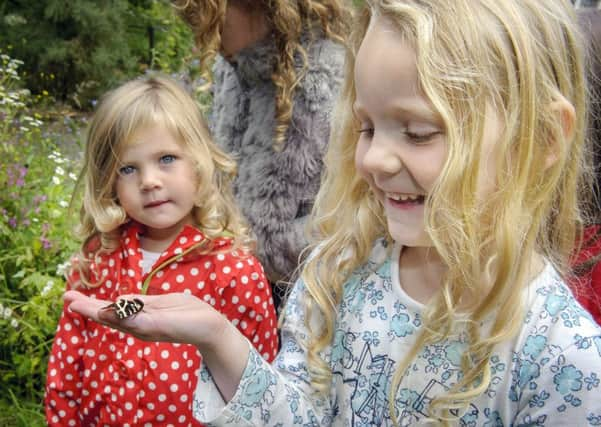Ilona Amos: We have global connectivity but we're losing touch with nature


This might sound like the start of a lame joke, but the results of recent research are no laughing matter. Findings suggest people are nowadays less connected with the natural world than in the past.
A new survey has found that a whopping seven in ten folk in the UK feel they are losing touch with nature, with one in six admitting they haven’t visited the great outdoors for two years. A considerable number questioned had never seen a hedgehog or a toad, and many confessed they couldn’t identify some of the country’s best loved plants and animals. Three quarters could not name hawthorn, while a third were unable to recognise a barn owl.
Advertisement
Hide AdAdvertisement
Hide AdBut one of the saddest statistics to be revealed in the study, carried out for Jordans Cereals, is that nearly two fifths of parents feel they don’t know enough about nature to pass on knowledge to their offspring. We need to reverse this trend or risk future generations who don’t know – or care – about the planet.
Numerous studies have demonstrated the benefits to humans of connection to wildlife and the environment, with children who are tuned in to nature having better mental and physical health and stronger social skills. So, whether or not we have kids in tow, we should all make more effort to get outside and reconnect with our surroundings.
There are plenty things to do, even without leaving town. Visit the local park and see what’s living there. Have a paddle in a pond. Whether it’s birds, bees, butterflies, squirrels, flowers or even slugs and snails, take a closer look – and smell and listen. Who knows what you’ll discover. “Connecting to nature should be a key part of any kid’s childhood, experiencing for themselves what a worm feels like or learning how a plant grows,” according to Jasper Hamlet, youth and families officer for RSPB Scotland. He insists the environment will also benefit, as those who have adventures outdoors build an emotional attachment to the natural world and are more likely to look after it.
The conservation charity is running a great initiative aimed at fostering a new generation of nature-lovers. The Big Wild Sleepout, which takes place this weekend, encourages youngsters and their families to sleep out under the stars as a way of getting closer to nature.
Thousands of people, young and old, are expected to take part across Scotland as the event marks its fifth year. You don’t need to go far, nor restrict yourself to a traditional tent. Some intrepid campers are opting to do away with canvas completely, throwing themselves at the mercy of the elements, while others are building their own den or spending the night on – or perhaps under – their trampoline.
There are even organised sleepout events being held at a couple of RSPB Scotland reserves – in Orkney and Loch Leven in Perth and Kinross – with activities such as wildlife walks, star-gazing and bushcraft on offer.
It doesn’t really matter where, or if, you sleep as long as you don’t miss the wealth of nocturnal wildlife that springs into action when the sun goes down. You could encounter anything from badgers, foxes, deer and hedgehogs to owls and bats, not to mention myriad moths and creepy crawlies.
So why not pack a sleeping bag and a midnight feast, pitch your makeshift home in a suitable wild place (or your back garden) and settle in for a night communing with nature. It’s summer after all, and it’ll do us all the world of good.